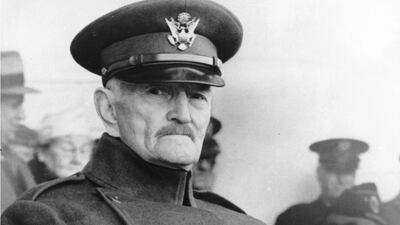The CIA warned regional Spanish police two months ago that the popular tourist area of Las Ramblas could be the scene of a deadly terrorist attack.
Details of the warning surfaced in Spanish media hours after 14 people were killed when a van ploughed into pedestrians on the crowded Barcelona thoroughfare.
The intelligence followed similar attacks using vehicles in several European cities, including Nice, Berlin, Stockholm and London.
According to the Spanish newspaper El Peridoco, the CIA warned Los Mossos, the Catalonian regional police force, in June that Barcelona was a likely target.
“Two months ago the Central Intelligence Agency passed a notice to the Catalan autonomous police," the paper said. “It even warned of the risk to Las Ramblas.”
Terrorist attacks are frequently followed by headlines about earlier warnings. However, police forces must sift credible, specific threats from the general background chatter.
Intelligence agencies have long warned that Catalonia was at high risk of an attack.
In 2007, the US embassy even suggested setting up a Mediterranean intelligence operation and counter-terrorism hub based in Barcelona to monitor the threat from jihadi terrorists.
“Heavy immigration - both legal and illegal - from North Africa (Morocco, Tunisia, and Algeria) and Southeast Asia (Pakistan and Bangladesh) has made this region a magnet for terrorist recruiters,” wrote Eduardo Aguirre, who was then US ambassador to Madrid in a cable published by Wikileaks.
On Friday morning, Donald Trump said US authorities were in a heightened state of alert.
“Homeland Security and law enforcement are on alert & closely watching for any sign of trouble,” he wrote on Twitter. “Our borders are far tougher than ever before!”
The attack in Barcelona has given him a chance to reassert the arguments that helped him win the election and to resurrect one of his favourite stories from the election campaign - despite the fact that it has been repeatedly debunked.
“Study what General Pershing of the United States did to terrorists when caught,” he urged his 36.1 million Twitter followers. “There was no more Radical Islamic Terror for 35 years!”
He offered no further explanation.
But the tale is a familiar one to supporters who attended his rallies last year when he would tell the story of how Gen Pershing (who went on to great acclaim during the First World War) halted attacks by Muslim soldiers in the Philippines by shooting rebels with blood dipped in pig blood.
The way Mr Trump tells it, the general ordered 50 prisoners to be lined up as his men loaded their rifles with bloody bullets. After 49 had been shot dead, he turned to the last prisoner and supposedly said, “‘You go back to your people, and you tell them what happened.’”
Mr Trump told the story to a crowd in February last year, adding, “And for 25 years, there wasn't a problem.”
Pershing’s own memoir describes an occasion when Muslims were buried in the same grave as a dead pig. “It was not pleasant to have to take such measures, but the prospect of going to hell instead of heaven sometimes deterred the would-be assassins,” he wrote.
But historians say there is no evidence to support Mr Trump’s dramatic tale of bullets dipped in blood or that it stopped the violence which in fact ontinued for decades after the 1913 uprising.
The president also reverted to using the term “radical Islamic terrorism”, a phrase his advisers have cautioned against using for fear it alienates an entire religion.
“Radical Islamic Terrorism must be stopped by whatever means necessary! The courts must give us back our protective rights,” he tweeted. “Have to be tough!”

